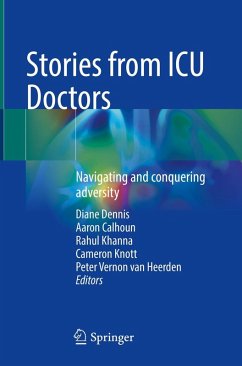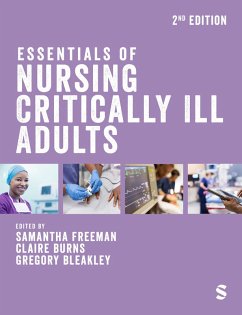
ICU Resource Allocation in the New Millennium (eBook, PDF)
Will We Say "No"?
Redaktion: Crippen, David
Versandkostenfrei!
Sofort per Download lieferbar
40,95 €
inkl. MwSt.
Weitere Ausgaben:

PAYBACK Punkte
20 °P sammeln!
Intensive care medicine is one of the fastest growing services provided by hospitals and perhaps one of the most expensive. Yet in response to the global financial crisis of the last few years, healthcare funding is slowing or decreasing throughout the world.How we manage health care resources in the intensive care unit (ICU) now and in a future that promises only greater cost constraints is the subject of this book, the third in an informal series of volumes providing a global perspective on difficult issues arising in the ICU.Taking 12 developed countries as their focus, leading experts prov...
Intensive care medicine is one of the fastest growing services provided by hospitals and perhaps one of the most expensive. Yet in response to the global financial crisis of the last few years, healthcare funding is slowing or decreasing throughout the world.
How we manage health care resources in the intensive care unit (ICU) now and in a future that promises only greater cost constraints is the subject of this book, the third in an informal series of volumes providing a global perspective on difficult issues arising in the ICU.
Taking 12 developed countries as their focus, leading experts provide a country-by-country analysis of current ICU resource allocation. A second group of experts use the chapters as a departure point to analyze current ICU resource allocation at the level of the global medical village. The process is repeated, but with an eye toward the future - first country by country, then at the global level - that takes into account initiatives and reforms now underway.
A fictional healthcare plan, the "Fair & Equitable Healthcare Plan," is put forth to address weaknesses in existing approaches, and healthcare experts and ethicists are invited to respond to its often provocative provisions.
Itself structured as a dialogue, the book is an excellent way to start or to continue serious discussion about the allocation of ICU healthcare resources now and in the years ahead.
How we manage health care resources in the intensive care unit (ICU) now and in a future that promises only greater cost constraints is the subject of this book, the third in an informal series of volumes providing a global perspective on difficult issues arising in the ICU.
Taking 12 developed countries as their focus, leading experts provide a country-by-country analysis of current ICU resource allocation. A second group of experts use the chapters as a departure point to analyze current ICU resource allocation at the level of the global medical village. The process is repeated, but with an eye toward the future - first country by country, then at the global level - that takes into account initiatives and reforms now underway.
A fictional healthcare plan, the "Fair & Equitable Healthcare Plan," is put forth to address weaknesses in existing approaches, and healthcare experts and ethicists are invited to respond to its often provocative provisions.
Itself structured as a dialogue, the book is an excellent way to start or to continue serious discussion about the allocation of ICU healthcare resources now and in the years ahead.
Dieser Download kann aus rechtlichen Gründen nur mit Rechnungsadresse in A, B, BG, CY, CZ, D, DK, EW, E, FIN, F, GR, HR, H, IRL, I, LT, L, LR, M, NL, PL, P, R, S, SLO, SK ausgeliefert werden.













